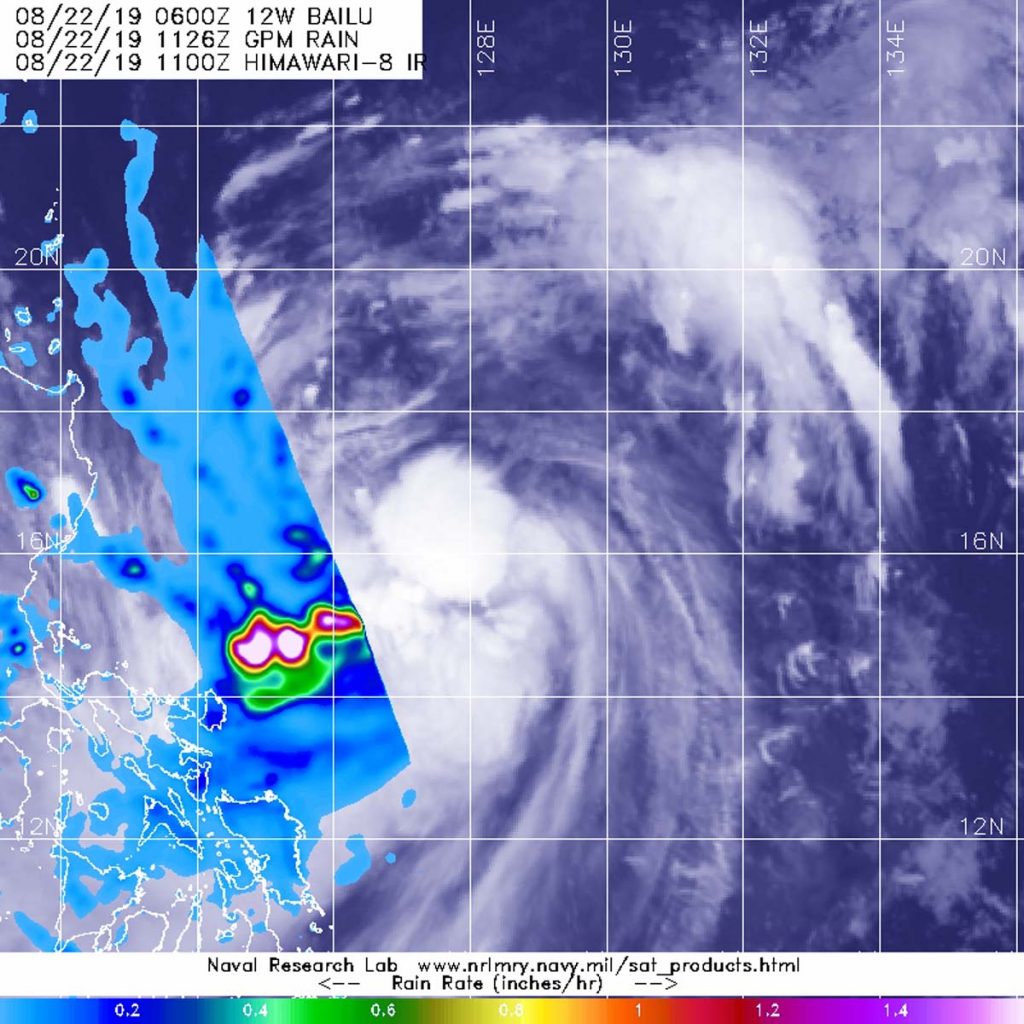Aug. 22, 2019 – NASA Measures Rain Rate in Tropical Storm Bailu
The GPM satellite passed over the Northwestern Pacific Ocean and Tropical Storm Bailu and measured its rainfall rates.

The Global Precipitation Measurement mission or GPM core satellite passed over Tropical Storm Bailu at 7:26 a.m. EDT (1126 UTC) on August 22, 2019. GPM found the heaviest rainfall was in a band of thunderstorms extending southwest of Bailu’s center where rain was falling at a rate of 40 mm (about 1.6 inches) per hour. GPM is a joint mission between NASA and the Japan Aerospace Exploration Agency, JAXA.
On August 22 at 11 a.m. EDT (1500 UTC), Tropical Storm Bailu had maximum sustained winds near 45 knots (52 mph/83 kph). Bailu is forecast to strengthen over the next day and a half. Bailu was centered near 17.3 degrees north latitude and 127.5 degrees east longitude. It was about 576 nautical miles south of Kadena Air Base, Okinawa Island, Japan. It was moving to the west-northwest.
The Joint Typhoon Warning Center forecasts calls for Bailu to make landfall in southern Taiwan on August 24 at typhoon status. The Central Weather Bureau of Taiwan is issuing Typhoon Warnings.
For updated forecasts, visit the Central Weather Bureau: https://www.cwb.gov.tw
